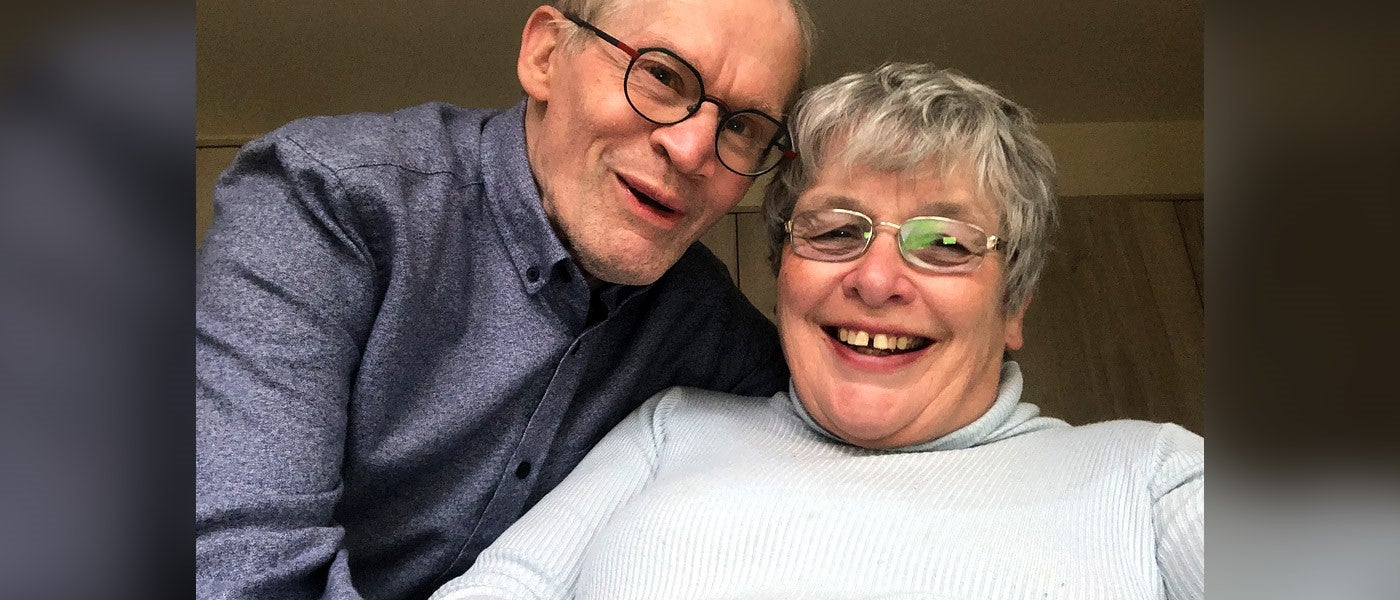- Home
- News and stories
- Celebrating 70 years of Scope
Celebrating 70 years of Scope
 17 November 2022
17 November 2022
My name is Jean and I live in Derbyshire with my husband Tim. In 1950, I was diagnosed with cerebral palsy.
In 1952, when I was just 3 years old, I was in Scope’s first film called ‘The chance of their lives’.
Since then, I have tried to challenge assumptions towards disability. I graduated from college, I have had a career in the NHS as a state registered chiropodist (podiatrist), I married my husband Tim, and we have a daughter.
Scope’s first campaign film focused on disability independence and equality
As a family, we've been around charity work all our lives.
In 1952, when I was 3, our GP recommended me for Scope’s 'The chance of their lives' film, which was narrated by the actor and radio presenter, Wilfred Pickles.
The film showed people of all ages, including children under five, children of school age, young adults learning a job, and older adults needing full-life care. It showed people wanting to work.
The Wellcome Trust added the film to their collection, and you can watch it on their website. The moment I discovered it there, I wrote to Scope. It was 70 years since that first film, and I wanted Scope to know I'm still here. I'm still alive.
I wanted to tell Scope that I got to 18, I went to college, I graduated, I got married. I did all the normal things.
Meeting Scope’s founders
Scope was founded 70 years ago, in 1952, by social worker (Jean Garwood) and three parents (Ian Dawson-Shepherd, Eric Hodgson and Alex Moira.)
I've met Ian Dawson-Shepherd on more than one occasion. My husband and I probably met Alex Moira as well.
Scope’s first employment adviser, Bill Hargreaves, set up a club called the 62 club, which helped disabled people have choice and control over their own leisure activities.
I first met Bill in 1967. He introduced me to my husband at one of the Reading conferences and later attended our wedding.
Bullying and negative attitudes towards disability independence were common in the 70s
The attitudes I came across as a child with cerebral palsy were that you were bullied both by society and by your peers.
When my husband and I were talking about marriage, we were met with a list of dos and don'ts from one of his relatives. The first thing they said was you shouldn't get married. They said, you shouldn't get engaged and you shouldn't have children, you shouldn't have your own house, you should have social housing, you shouldn't be independent, and you should bring in home help.
We were told these things in 1973. It’s now 2022, we own a 4-bedroom bungalow and have a marriage that's gone on for the best part of 50 years. We have a daughter in her 40s, and we have 2 grandchildren.
People said I shouldn't do something, and I said, shouldn't I? People make assumptions. They say what they think should happen. It's that attitude that still needs to change.
Disabled people need more representation to help change attitudes
We need more people like the disabled comedian, Rosie Jones. Rosie is herself. She does it with flair, she does it with style. I like to do it with flair, and I like to do it with style.
We want people to accept us as who we are. And not all treat us alike. I also think we are all responsible for our own change in attitudes. I try to live my life and make people rethink what they're saying by challenging the experience.
Attitudes towards disability have changed a lot in the past 70 years, however there is still so much to be done to positively change attitudes towards disability in society. Read Scope’s attitudes report to find out more about what attitudes towards disabled people are like today.
 17 November 2022
17 November 2022








